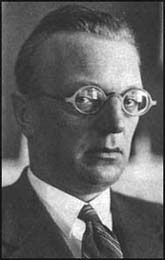Life During The Dutch Occupation – Part 3
The country had known peace for over a century and was amazed about the way the Blitzkrieg had overwhelmed them. Rotterdam bombed, thousands dead and missing, countless of people homeless and a uncertain future ahead. Besides all that, the country would now surely be overrun by violent barbaric Nazi soldiers the Dutch had been hearing about so much in the last few years.
Many people, especially Jews, communists, socialists and anti-fascists tried to escape the country, few succeeded.
Although most Dutch weren’t sure what to expect, many others knew exactly what to expect from the Nazi occupation, there were thousands of German refugees in the country, some with first hand experience of the concentration camps and the way the Nazis treated everyone they didn’t agree with. Nobody knows exactly how many people committed suicide in the maydays of 1940, especially amongst the Jewish population many preferred death over what they thought would come next.
{default}In Amsterdam alone nearly 250 people took this way out.
As hundred of vehicles filled with battle hardened heavily armed men entered the streets and towns the Dutch looked on in amazement. They were very impressed by this professional army, but they were also amazed to see that some of the cars looked similar… apparently to make the parade look more impressive the vehicles at the front drove back and joined the parade again from the back!
There were few Dutch who welcomed the invading army with cheers but to many it was surprising how well mannered and restrained these soldiers were. In the weeks that followed people became even more surprised about this. The Germans in the Netherlands were ordered to behave, to be extra friendly. The propaganda machine was working full time, showing everybody how nice these occupiers were, that the occupation was for the good of the country and how one day the Netherlands would be a valuable member of the Third Reich without losing its identity.

Re-enactment photo: Soldiers at a German checkpoint check papers
The soldiers behaved as tourists, as friendly tourists who wanted to spend lots of money especially on cheese and chocolate, items that were hard to get back home in Germany. No fierce anti Jewish laws, the Dutch Nazi party (the Nationaal Socialistische Beweging) was told to behave and soon life went back to normal. This is not what people were expecting.
Because of this there was little to no resistance, why should there be?
Of course from day one there were people who wrote a few underground leaflets against the occupation and full of anger about the way the Germans had fought, there was some minor sabotage but that was about it. The Dutch prepared for a long occupation, while they got used to a new sort of society, the German army moved on, Belgium and France fell, the British barely made it back across the northsea and to many it seemed like only a matter of time before the Germans would conquer Britain. America was not getting involved and it seemed that this occupation would last many years. The war was over, the Germans had won, no use fighting. But what was there to fight anyway?
On the 18th, 3 days after the Dutch army surrendered Hitler appointed Arthur Seyss-Inquart Reichskommissar for the Occupied Netherlands, this country would not be run by the military but by a civil Nazi administration. Later on this would prove to make things in the Netherlands very different then from other occupied countries.

Archive Photo: Arthur Seyss-Inquart
Arthur Seyss-Inquart was a prominent Nazi, born in Austria-Hungary, early member of the local Nazi party and Austrian Minister of Interior. When Hitler threatened Austria with invasion the Chancellor Schuschnigg resigned and Seyss-Inquart became Chancellor. The very next day German troops crossed the border of Austria to incorporate it into the Third Reich, the so called Anschluss.
The Dutch were not sure what to expect, obviously their country had a different status then other countries and they had a different administration, their own government in exile had told them to go along with the new order, not to resist. There was a lot of hate and anger towards the occupiers, regardless of their behaviour, the majority of the Dutch were still furious about how they were invaded, the bombing of Rotterdam and most wanted the Germans out as soon as possible. But besides that life went on.
The Queen, that had left for England on the 13th of may made a speech on the BBC to her people in july, explaining to them her reasons for leaving.
Not telling the people she didn’t want to leave and would have rather died fighting at the front. This may seem a bit dramatic but that’s actually how she felt, when the British destroyer came to collect her she wanted to be taken to the south of the Netherlands, she didn’t want to leave. But when the south came under attack the captain decided to go to England nevertheless. Either way, most Dutch people had been very disappointed in her leaving, feeling abandoned.
But her speech on the BBC soon brought back her popularity and during the war she would even become more popular then ever before. The BBC would from that time on also be something the Dutch would depend on for their news. The occupation had begon, the war had come as a shock but things seemed to go back to normal and the German occupier didn’t seem as bad as expected.
But it wouldn’t take long for the Germans to drop their masks.
Miss Joeri

